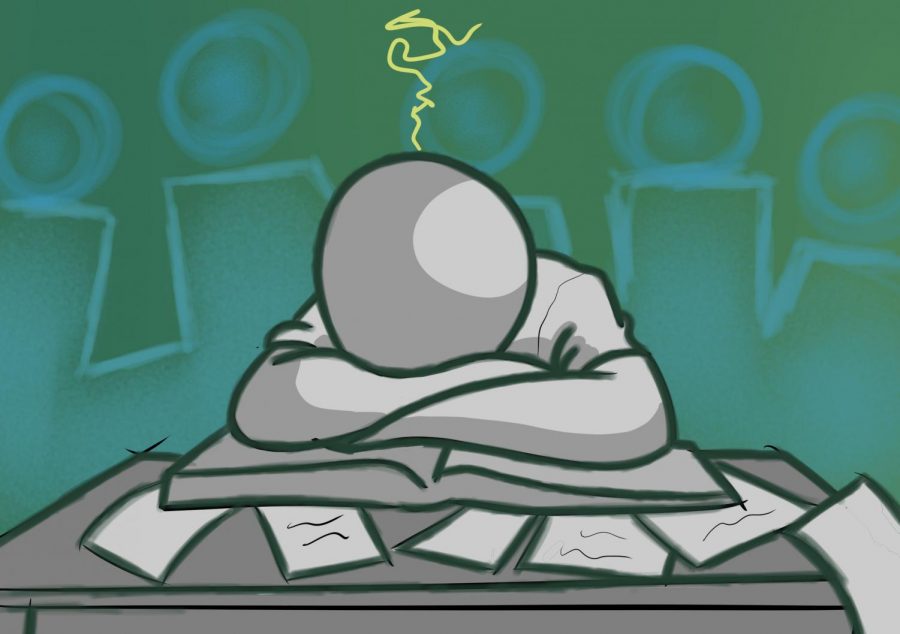The definition of success
I find myself sitting in the back seat of my uncle’s car on our way to meet up with my parents at my favorite Chinese restaurant. My uncle is driving, and my aunt sits in the passenger seat. Beside me is my obnoxious 9-year-old cousin, who insisted that I sit with her on the ride there. Feeling rather patient, I entertain my cousin’s arbitrary chit chat with a few of my own questions. We go back and forth about school, friends and favorite colors.
“So, what do you want to be when you grow up?” I inquire, since her dream job was ever-changing. One week she would want to be an artist, the next, a movie director.
“Hmm…” She pauses for a moment. “How about a cool mom?”
I burst out laughing. I see my aunt and uncle’s amused faces from the front seats at their daughter’s response, but it’s not long before their attention shifts to me. The subject turns into something I’m sure many teens dread: college.
“So, Yasmin, where are you thinking about going to college? It’s almost time you know,” my uncle asks.
I give my answer: “Um. Well, I really want to go to a school with a good animation program. Maybe somewhere in California or New York.”
My aunt and uncle exchange worried glances. My aunt asks if I have any interest in the medical field, and I tell her I don’t.
“It’s good to have dreams, but they need to be realistic Yasmin,” my uncle says.
I should know to expect this, but even then I’m frustrated. “I can do it,” I say firmly, and our conversation ends there, but the disappointment on their faces doesn’t.
This fleeting moment should have seemed small and insignificant, but it left me pondering our ideas of education and success.
In my family, getting into a good college and performing well is essential to reach success. Next is to secure a job that guarantees financial security: maybe things like a doctor, an engineer or a lawyer. Dreams of pursuing art, acting or writing are thought of as nothing but a hobby or something to do for fun, not for life.
This mindset needs to change. Students should be encouraged to pursue their interests, but, unfortunately, that comes with a price. Our economy isn’t exactly forgiving toward these dreams, and it seems like only the lucky few make it. My mom frequently expresses she doesn’t want me to be a “starving artist” because of how common that is for those who pursue the arts.
Many students, and their families, share these values that success is about making money. To make it to that point, students have to perform well in school and study to become a part of one of the few professions that guarantees financial stability instead of doing something they actually want to. Don’t get me wrong, I don’t condemn these jobs that make money; the world is in need of more of these educated individuals, but I wish the drive behind professions like a doctor or lawyer was more genuine.
Because of this mentality, school feels like a novel and intellectual survival of the fittest for those who participate. Perfection is key: any mistakes, and you’re out of the race. A lot of my school-based stress stems from myself; I get caught up in the societal pressure of doing well and being the best, because it turns out my motives are the same as the majority of students in high level classes: take the class, get the grade, boost GPA and get college credit. I get so caught up in the cycle that I forget to slow down and appreciate what I’ve learned.
Students like myself are constantly fretting about getting into the colleges they want, but at what cost? We’re always thinking about the next test, studying for the SAT, how many service hours we need, and whatever else to strengthen our college applications. The people around me often complain about lack of sleep, grades and how busy they are. In fact, there seems to be a practice among students now to glorify overwork.
All of these factors cause so much pressure among high-achieving students, and I’m not sure the outcome is worth it or if the “success” we get out of it is what we want. Whenever I come home stressed, my dad notices immediately. “Too much pressure,” he says as he shakes his head. “You guys are taking too much pressure.” But there’s nothing he can do to help.
Education is necessary and comes with its hardships, some of which is acceptable, but it shouldn’t be so hard that we burn ourselves out. There’s a lot on the plate of a dedicated student and it’s overwhelming. Being successful is important, but if we shift the view on what success is, it might not be so difficult to achieve. We are so focused on monetary success as the destination, that we forget to enjoy education and school as the journey.

Senior Yasmin Haq is the editor-in-chief and this is her fourth year on staff. She dabbles in just about anything creative including writing, photography,...



